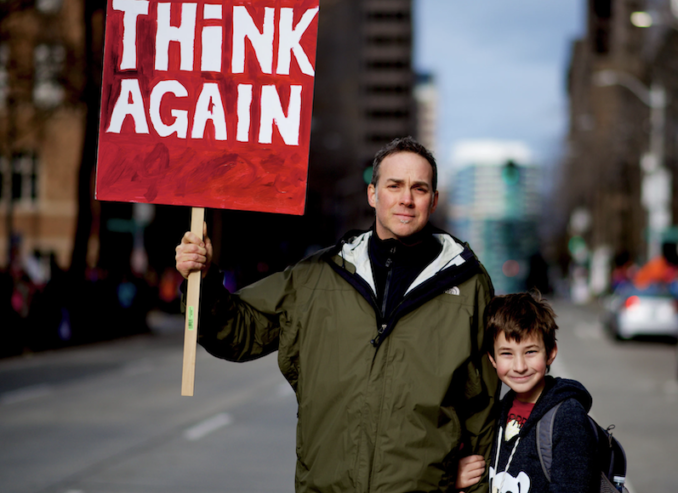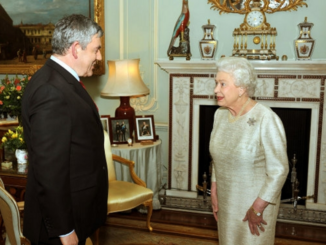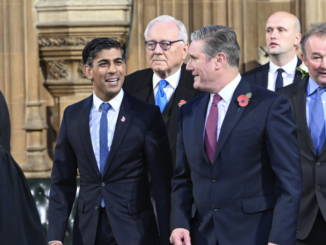
Think again,
Jose M – Unsplash licence
Throughout the ballot box’s history, unexpected election results have stunned the public, defied polls, and shifted political landscapes. These surprising outcomes often reflect underlying societal changes, voter sentiment, and the unpredictability of electoral politics. As we approach a UK general election, voters, pollsters and commentators are certain of a Labour win and a Starmer super-majority. But should they be?
An Awkward Draw
The 2010 election, held on May 6, marked a significant turning point in Westminster, resulting in the first coalition government since World War II. The election ended 13 years of Labour rule, with the Conservatives and Liberal Democrats joining forces to form a government. The primary figures were Gordon Brown, the incumbent Prime Minister, David Cameron of the Conservatives and Nick Clegg, leader of the LibDems. During the campaign, key issues included the economy – still reeling from the 2008 financial crisis – immigration, public spending cuts, and political reform.
The campaign was notable for the introduction of televised debates between the leaders, a first in UK electoral history. Clegg’s strong performance in these debates, in particular the first one, garnered significant attention and an apparent surge in popularity for the Liberal Democrats. ‘I agree with Nick’ became an election catchphrase.
Labour were hampered by a leaden Gordon Brown, who lacked the early charisma of his New Labour predecessor Tony Blair. During the campaign, a hot mic caught Mr Brown calling a voter a bigot. An elderly Mrs Gillian Duffy questioned the Prime Minister on levels of immigration from Eastern Europe. Off camera, but not off microphone, Brown referred to Mrs Duffy as ‘a bigoted woman.’ However, those expecting a Liberal Democrat breakthrough or a Conservative win, were in for a surprise.
When the votes were counted, the Conservatives won 306 seats, an increase of 97 from the previous election, but falling short of the 326 needed for an outright majority. Labour won 258 seats, a loss of 91 seats, reflecting, but only up to a point, the haplessness of Brown and the consequences of economic growth based on a New Labour credit bubble and subsequent crash. The Liberal Democrats won 57 seats, a decrease of five despite Clegg’s tremendous success in the TV debates and an increased share of the vote from 18% to 22%. Remaining with the popular vote, Cameron’s Conservatives on 36% were only 7% ahead of Labour. With no party gaining a clear mandate, the result was a hung parliament.
Two conversations during the campaign stand out, both on my own doorstep. A Conservative canvasser chanted, ‘Five more years of Gordon Brown?’ in the same way Keith chants about his toolmaker father. I responded that the local school is jam-packed and over-subscribed – unless you’re Polish. As he turned and fled, I shouted after him if Cameron promised an EU referendum, he would win at a canter, whereas, as things stood, he would struggle. For once, I was right.
The other conversation concerned a BNP activist. She noted no matter how useless Brown is, Blair’s New Labour election machine is still in place. The Labour Party understands who its voters are, where they are, which buttons to press and how to motivate them to vote. This machine saved Labour from complete disaster in 2010 but suffered under Brown’s successor Ed Milliband and ended up on life support during the leadership of Jeremy Corbyn.
In the days following the 2010 election, negotiations took place between the parties to form a coalition government. The Conservatives and Liberal Democrats reached an agreement, with David Cameron becoming Prime Minister and Nick Clegg taking the role of Deputy PM. This coalition, the first in a series of unexpected historical political developments over the last 14 years, marked the first time in modern British politics the LibDems held such significant government positions, and the first full coalition administration since the National Government of 1931.
The Awkward Win
The 2015 general election garnered more surprises. Commentators and pollsters predicted the May 9th ballot would result in a second consecutive hung parliament whose composition would suggest the continuation of a Conservative LibDem coalition under David Cameron and Mr Clegg. Opinion polls underestimated the Conservatives, however. They won 331 of the 650 seats, an increase of 24 seats from the previous parliament, on 36.9% of the votes, giving them a majority of ten seats. Labour secured 232 seats, down by 26. The Liberal Democrats suffered a catastrophic loss, retaining only 8 seats, down from 57, with key figures like Nick Clegg losing theirs.
David Cameron campaigned on a platform of financial stability, promising continued austerity measures to reduce the national deficit, alongside an electorally crucial pledge to hold a referendum on the UK’s membership of the European Union. The Labour Party, led by Ed Miliband, focused on addressing economic inequality and proposed higher taxes on the wealthy and increased public spending. The Liberal Democrats, struggling to maintain their identity and voter base after the coalition with the Conservatives, suffered a significant backlash from their supporters.
Away from the Liberal-Labour-Conservative axis, the SNP experienced a surge in support following its (expected) 2014 Scottish independence referendum loss. Because of the first-past-the-post system, the SNP achieved a landslide in Scotland, winning 56 out of 59 seats, an increase of 50. Likewise, owing to FPTP, UKIP gained almost 4 million votes but only secured one seat. Undaunted, UKIPers anticipated a Brexit referendum which Cameron, having been condemned to govern in majority, couldn’t negotiate away in a coalition agreement. Expecting a Remain victory, Mr Cameron called an EU referendum early, going to the polls the following June after a lackadaisical non-attempt to renegotiate British membership of the Continental European block.
The rest is history, with an appropriate epitaph for complacent Mr Cameron’s time in Number 10 being, ‘Expect the Unexpected.’
© Always Worth Saying 2024



